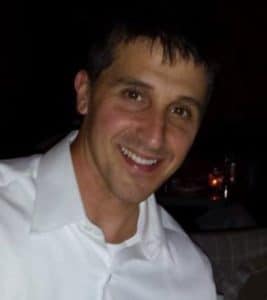Dr. Mark DerKazarian was born in Cambridge, Massachusetts and raised in Belmont, Massachusetts, where he graduated from the Belmont Hill School (1991). He attended Union College and graduated with a Bachelor’s of Science in Biology (1995). Dr. DerKazarian received his Doctorate in Medical Dentistry (D.M.D-1999) from the Boston University Goldman School of Dental Medicine. He graduated with magna cum laude, the student award in periodontics, and was valedictorian of his class. Dr. DerKazarian received his Certificate in Periodontics and Oral Implantology from Virginia Commonwealth University’s Medical College of Virginia in 2002. While in his residency, he received a Masters Degree in Science investigating the association between anemia and periodontitis, and completed a program in intravenous conscious sedation.
Dr. DerKazarian resides in Carlisle Massachusetts with his wife, Jill and enjoys spending time with his three children, Claire, Charlie and Addie.
Dental Implants :
A dental implant is a titanium root-shaped fixture that replaces the root of a tooth. Dental implants may support single or multiple crowns, fixed bridges, or removable teeth with the goal of restoring function and esthetics. The dental implant does not need to be attached to teeth next to the space, so natural teeth would not need crowning just to replace a missing tooth or teeth, as with a conventional fixed bridge.
Implants allow a patient to have replacement teeth that look good, feel good, and function like natural teeth.
A consultation with appropriate dental x-rays is necessary to determine if one is a good candidate for implant dentistry. Factors that need to be considered are health of any teeth present, quality and volume of bone in the implant site, and general health of the patient. Diabetics with good regulation of blood glucose could be considered for implants.
Smoking increases the risk of implant infection, but is not a strict contraindication. A smoker also generally has more loss of bone and risk of infection around their natural teeth. (Kerduongbundit and Wikesjo J. Periodontol. March 2000)
Age may prevent placing implants in young people before they complete physiologic growth. This would be about sixteen for girls and seventeen or eighteen for boys. (Renouard, Rungert. Risk Factors in Implant Dentistry)
The scientific basis upon which modern implant dentistry rests is the result of research by Professor P. I. Branemark and co-workers which began in 1952 in Sweden. Dr. Branemark was an orthopedic surgeon who began animal studies to investigate what type of metal should be used to make bone screws to stabilize bone fractures. These studies produced thirty-five Ph.D. theses on various aspects of wound healing. Bone was found to have a great affinity for titanium.
In 1966, Dr. Branemark began to place titanium screws in humans. He and co-workers reported a ten year follow-up on these cases in the Scandinavian Journal of Plastic and Reconstructive Surgery. (Branemark P.I. :Osseointegration and its experimental background. J. Prosthet Dent. 1983; 50: 399-410.)
The past ten years has brought many improvements in the implant shapes, surfaces, and in techniques to graft bone and soft tissue to sites that need implants.
Sinus Augmentation
Placing implants in the posterior of the upper jaw can be a problem if bone loss there is severe or the sinus has expanded too much in the bone space. The lack of bone volume can be overcome with a bone graft in the lower part of the sinus by an access opening through the lateral wall. The implants are usually placed four to six months after the sinus graft. The graft itself is replaced by the patient’s own bone cells and the resulting healed graft is dense and strong. Dr. Hilt Tatum originated this graft technique in 1975.




